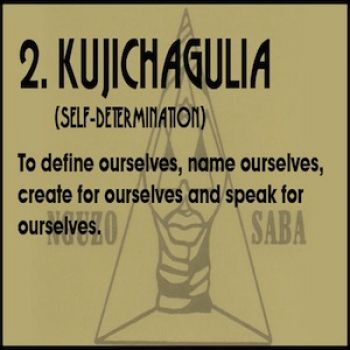
Happy Holidays! Today starts the cultural and reflective holiday and celebration of the Nguzo Saba, also known as Kwanzaa.
Kwanzaa is a cultural and reflective holiday not a religious or a political holiday. Inspired by the Black empowerment period, with leaders such as Malcolm X and the Black Panther Party, Kwanzaa was created by educator Dr. Maulana Karenga in the mid-1960’s in the U.S. during the Civil Rights Movement. It is a time when African-Americans celebrate their African heritage.
Dr. Karenga is chair and professor of African-American Studies at the California State University at Long Beach. Kwanzaa was created to establish a holiday in an effort to pull the African-American community together in pride and unity especially given the heritage and culture of African-Americans was beaten and stripped from them by Europeans and white-Americans who did not wish to see them united and inspired, during the horrible slavery period in North America and the Caribbean.
The principles of Kwanzaa is based on ideas generated from an ancient African Swahili seven-day-long harvest celebration. Dr. Karenga took some old ideas, and added some new ideas, and came up with a special celebration which has now caught on and become a respected cultural holiday, called Kwanzaa.
Kwanzaa begins each year on December 26 and lasts through the first day in January. The symbols of Kwanzaa are African harvest symbols, like ears of dried corn and colorfully woven tablecloths. Participants celebrate, enthusiastically prepare and decorate their homes for Kwanzaa while celebrating Kwanzaa’s seven principles.
These seven principles are derived from African Heritage, which Karenga has claimed “is a communitarian African philosophy,” representing “the best of African thought and practice in constant exchange with the world.” The values comprise Kawaida, a Swahili term for tradition and reason. Each of the seven days of Kwanzaa is dedicated to one of the following principles and presented as follows:
Umoja (Unity): To strive for and to maintain unity in the family, community, nation, and race. American slavery orchestrated chaos & division.
Kujichagulia (Self-Determination): To define ourselves, name ourselves, create for ourselves, and speak for ourselves. Seeking to reclaim culture.
Ujima (Collective Work and Responsibility): To build and maintain our community together and make our brothers’ and sisters’ problems our problems, and to solve them together.
Ujamaa (Cooperative Economics)To build and maintain our own stores, shops, and other businesses and to profit from them together.
Nia (Purpose): To make our collective vocation the building and developing of our community in order to restore our people to their traditional greatness.
Kuumba (Creativity): To do as much as we can, in the way we can, in order to leave our community more beautiful and beneficial than we inherited it.
Imani (Faith): To believe with all our hearts in our people, our parents, our teachers, our leaders, and the righteousness and victory of our struggle.
An important symbol is the Kinara, the wooden candlestick. This candlestick holds 7 candles in a row. The center candle is black, to signify unity. There are 3 red candles on one side, and 3 green candles on the other.
Day One: The black candle is the focus then lit. This is a day of UNITY & togetherness, sharing feelings.
Day Two: A red candle is lit. This is a day of togetherness, sharing traditions.
Day Three:A green candle is lit. This is day of togetherness, sharing a common goal.
Day Four: A red candle is lit. This is a day of togetherness, sharing a family gift.
Day Five: A green candle is lit. This is a day of togetherness, sharing dreams and hopes.
Day Six: A red candle is lit. This is a day of togetherness, sharing creativity.
Day Seven: A green candle is lit. This is a day of togetherness, sharing a feast.
Happy Kwanzaa and Happy Holidays from The Source!
The post The Northstar Group/The Source Magazine Celebrates Kwanzaa “The Nguzo Saba” first appeared on The Source.
The post The Northstar Group/The Source Magazine Celebrates Kwanzaa “The Nguzo Saba” appeared first on The Source.


